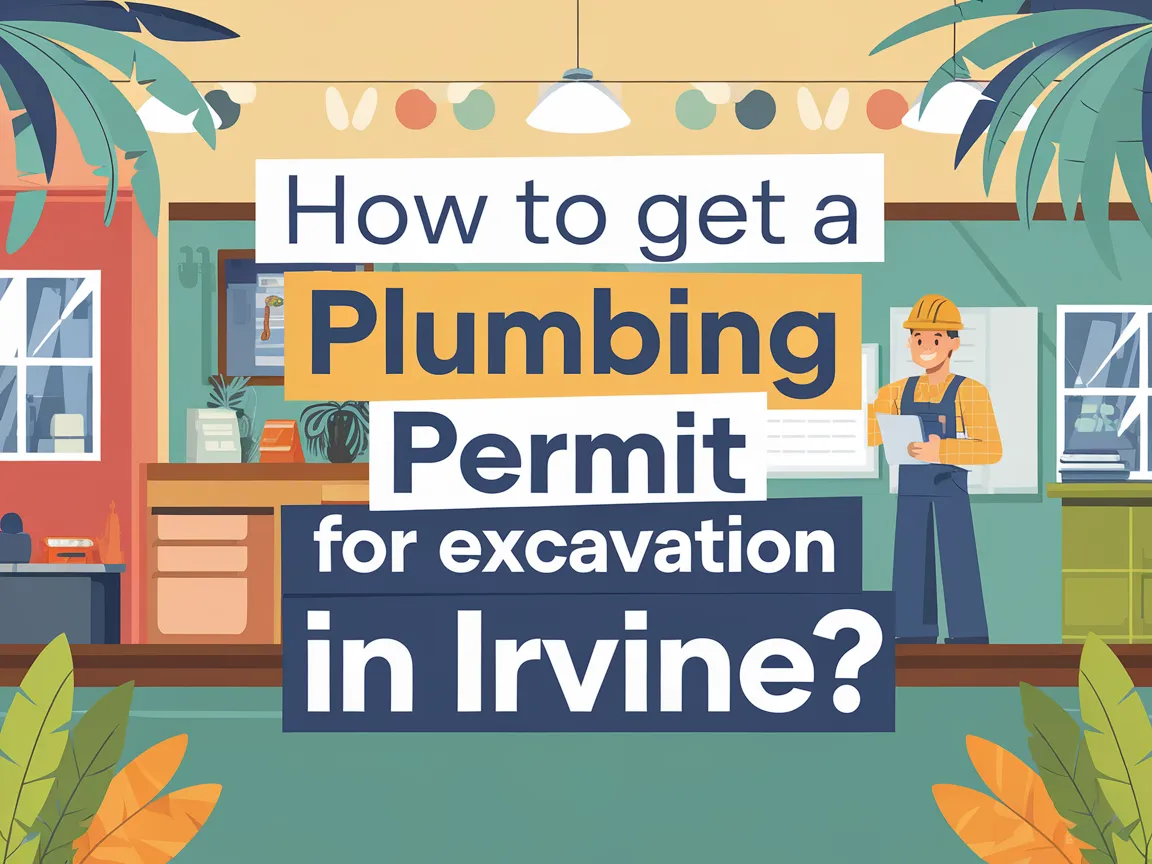Why Does My Plumbing Sound Like a Foghorn?
Last Updated: February 27, 2025
Plumbing is like magical tubes that carry water to our sinks and toilets. It helps us take showers, drink, and flush away waste.
A plumbing head-scratcher I’m frequently asked about is why does my plumbing sound like a foghorn. I’ve dealt with this issue before, and I get how annoying it can be, but I’m here to help you figure it out.
In this guide, we’ll explore troubleshooting plumbing noises, diagnosing and fixing those foghorn sounds, costs involved, factors affecting noise levels, special notes on old plumbing, and when to call in the pros.
Table of Contents
- Why Does My Plumbing Sound Like a Foghorn?
- What is Plumbing?
- Before You Start: Troubleshooting Your Plumbing Noises
- How to Diagnose and Fix Plumbing That Sounds Like a Foghorn
- Understanding Water Hammer and Its Causes
- Common Causes of Foghorn-Like Pipe Noises
- Identifying Foghorn Sounds in Different Fixtures
- Preventive Measures Against Plumbing Noise
- How Much Does It Cost to Fix Plumbing Noises?
- What Factors Affect Plumbing Noises Like a Foghorn?
- Special Considerations for Older Plumbing Systems
- When to Call an Expert for Plumbing Noises
- FAQ
- Final Words: Keeping Your Plumbing Quiet and Efficient
- Additional Resources
Why Does My Plumbing Sound Like a Foghorn?
If your plumbing sounds like a foghorn, it’s likely due to trapped air or water hammer. This happens when pipes shake or vibrate from sudden stops in water flow. You might need a plumber to check your pressure regulator or install air chambers to fix it.
What is Plumbing?
Plumbing is basically the system of pipes (Tubing That Transports Water) and fixtures (The Parts You Can Interact With, Like Faucets and Toilets) that handles both hot and cold water supply in your home. In fact, in a typical U.S. home, plumbing basics and DIY techniques account for over 50% of water use. So, it is a big deal for homeowners in Irvine and beyond. Plumbing systems are often constructed with PVC (Polyvinyl Chloride) or copper pipes, which usually come in various standard sizes indicated by their diameter in inches. For instance, ¾ inch (19 Mm) pipes are frequently used for residential plumbing. If you’re interested in exploring a career in this essential trade, check out how to start your plumbing journey.
Now, moving on to the question of why your pipes might sound like a foghorn. This annoying sound usually comes from issues like high water pressure or sediment buildup. With an average water pressure of around 40-80 psi (Pounds Per Square Inch), excess pressure can make your pipes vibrate significantly, leading to that foghorn-like sound. To determine the exact cause and get it sorted, contacting a local plumbing professional can save you from potential harm down the line.
Before You Start: Troubleshooting Your Plumbing Noises
What do you need to tackle the issue of why your plumbing sounds like a foghorn? Seriously, those noises can drive you nuts!
- Wrenches: You’ll want a set of adjustable wrenches, like the Craftsman 10-inch and 8-inch. They’ll help you loosen fittings that might be causing the noise.
- Pipe Insulation: Consider using insulation like Foam Pipe Wrap, specifically 1-inch wide (2.5 Cm), to protect exposed pipes. This can reduce noise by keeping your pipes nice and warm!
- Teflon Tape: Grab some Teflon tape, like Oatey 1/2-inch (1.25 Cm) tape, for sealing pipe threads. It’s critical for stopping any tiny leaks that can pop up and create that annoying noise.
- Soundproofing Material: Look into using mass loaded vinyl, particularly MLV-1/16 inch (1.59 Mm). It dampens sounds from your pipes even better when applied correctly.
You should now have a good understanding of plumbing noise issues and troubleshooting steps. In the next part, we’ll discuss diagnosing and fixing foghorn-like sounds.
Also See: When to Call an Emergency Plumber in Irvine?

How to Diagnose and Fix Plumbing That Sounds Like a Foghorn
Now, let’s cover the steps to tackle that annoying plumbing issue that eerily echoes like a foghorn.
-
Identify the Source Of the Noise
First, start listening carefully to pinpoint where the foghorn sound is coming from. Check multiple fixtures, like sinks or refrigerators, since the noise can travel through pipes.
The sound might intensify when you use hot water, so turn on the faucet to see if that’s the case. If it does get louder, it likely points to an issue with your hot water line.
-
Check for Water Hammer Issues
Water hammer happens when a faucet or valve quickly shuts off, creating a shockwave. You might hear a loud banging noise that sounds a lot like a foghorn during these instances.
To reduce this effect, call a plumber to install water hammer arrestors. They create a cushion of air that absorbs the shock, significantly cutting down on noise.
-
Inspect for Loose Pipes
If you’re hearing soft knocking noises, it might be because pipes are shifting and rubbing against each other. Check any exposed pipes in your basement or under sinks to see if they’re secured properly.
If you find loose pipes, use pipe clamps and brackets to secure them. This small fix prevents future racket—trust me, it’s worth it!
-
Evaluate Your Water Pressure
High water pressure might be adding to that foghorn noise. Ideally, your system should run between 40 to 60 psi (Pounds Per Square Inch). Test this with a pressure gauge at the closest hose bib.
If you discover it’s exceeding 60 psi, consider installing a pressure-reducing valve to avoid damaged fittings and persistent noise over time.
-
Consider Using Water Hammer Arrestors
If that foghorn noise keeps hanging around after you’ve secured pipes and managed the water pressure, it’s time to install a water hammer arrestor near the noisy fixtures. This device acts like a mini shock absorber for water pressure surges. When troubleshooting plumbing issues, knowing the basics of rough-in plumbing techniques can help you diagnose and resolve persistent pipe problems more effectively.
They come in various sizes and compatibilities, so make sure you choose the right fit for your plumbing setup to see significant results.
Pro Tip: After fixing those loose pipes, regularly check them to prevent any future noise. Keep everything secure for long-lasting peace and quiet!
That covers diagnosing and fixing plumbing noise issues. Let’s now take a look at understanding water hammer and its causes.
Understanding Water Hammer and Its Causes
Water hammer is a common culprit for that foghorn-like sound in your plumbing. Let’s break it down so you can get a grasp on how to deal with it.
What is Water Hammer?
Water hammer occurs when moving water abruptly stops or changes direction, causing a shockwave that leads to loud banging noises. It’s the pipe version of slamming a door—it makes a whole lot of noise!
Common Causes of Water Hammer
- Quickly closing valves: If you turn off your faucet too fast, the sudden stop creates pressure spikes that lead to that foghorn sound.
- Pipes not secured: Unstable pipes that wobble are more prone to noise. They need proper support to stay quiet.
- High water pressure: Excess pressure increases the chance for water hammer. Ideal water pressure should be between 40-60 psi.
- Lack of air chambers: Air chambers act like shock absorbers for water flow. If they’re installed improperly or have failed, you’re in for some noisy plumbing.
Diagnosing Water Hammer in Your Pipes
Here’s a quick checklist to help you figure out if water hammer is indeed the problem:
- Listen to the Sounds: Identify if the noise happens after using fixtures like sinks or toilets.
- Check Pipe Stability: Look for loose pipes; they should be secured tightly with clamps.
- Assess Water Pressure: Use a water pressure gauge to ensure levels are within the safe range. Test at an outdoor faucet.
- Look for Air Chambers: If you’ve got them, check they’re functioning. You might need a plumber’s help to assess.
We’ve wrapped up understanding water hammer and its causes here. Let us turn our attention to common causes of foghorn-like pipe noises.
Common Causes of Foghorn-Like Pipe Noises
Understanding what triggers foghorn noises in your plumbing is key to getting a fix. Here are some common culprits:
- High Water Pressure: Excess pressure can cause vibrations. If your gauge reads above 60 psi, it’s time to adjust.
- Sudden Valve Closure: Quickly shutting off faucets creates shockwaves that lead to noise. Think of it as a sudden slam to your plumbing!
- Trapped Air: Air pockets in your plumbing can cause spluttering sounds. They can form during repairs or if your system has air leaks.
- Aging Pipes: Older plumbing systems may have worn-out components, leading to odd sounds. Pay attention to fixture ages!
You should now have a good understanding of common reasons for foghorn-like pipe noises. In the next part, we’ll discuss recognizing these sounds in various fixtures.

Identifying Foghorn Sounds in Different Fixtures
Believe it or not, different fixtures can make that same annoying noise! Here’s how to identify where it’s coming from:
- Toilets: Listen for a foghorn noise during flushing—that could mean issues with the fill valve.
- Sinks: Check once you turn on the tap; a foghorn sound may signal pressure fluctuations.
- Dishwashers: Unexpected noises can indicate a blocked hose or pressure problems.
- Washing Machines: Listen for loud bangs; that might show you’re having water hammer issues!
Preventive Measures Against Plumbing Noise
Taking preventive steps can help you avoid those foghorn-like sounds in the first place. Here are some tips!
- Install water hammer arrestors: These troubleshooters will cushion the sound by absorbing water shock, so make sure they’re part of your plumbing setup.
- Maintain water pressure: Keep an eye on your pressure—over 60 psi may cause issues down the line.
- Regular inspections: Schedule routine plumbing checks to ensure everything’s functioning smoothly and address any issues before they escalate.
- Secure piping: Properly support your pipes, especially those that are known to vibrate. Use brackets and straps to keep them in place.
How Much Does It Cost to Fix Plumbing Noises?
You might be wondering what kind of damage those eerie noises are causing to your pipes. On the low end, fixing plumbing noises can cost around $100, while on the higher end, you’re looking at about $500. This depends on whether it’s just air in the pipes or more serious issues, like loose fixtures. Personally, I’d budget around $250 to $300 just in case. I’ve found that most repairs in the OC take about 1 to 3 hours, and unanticipated expenses like flare fittings or pipe reinforcements can add to your costs. When strange sounds persist, it’s crucial to contact professional plumbing experts who can diagnose the underlying problem quickly and effectively.
Cost Breakdown for Plumbing Noises
| Issue | DIY Cost | Professional Cost |
|---|---|---|
| Loose Pipe Fittings | $20 – $50 | $100 – $150 |
| Air in Pipes | $15 – $30 | $100 – $200 |
| Blocked Vents | $30 – $60 | $200 – $300 |
| Checking Valves | $10 – $40 | $50 – $100 |
What Factors Affect Plumbing Noises Like a Foghorn?
So, what causes those unusual plumbing noises in your home? Let’s dive in!
-
Water pressure issues: High water pressure can make pipes vibrate, causing that foghorn sound you might be hearing.
-
Pipes not secured properly: Loose pipes can rub against walls, amplifying loud noises during sudden vibrations.
-
Aerators clogged: Blocked aerators can restrict water flow, creating odd sounds when you use your faucets or showers.
-
Wear and tear on valves: Old or worn-out valves might malfunction, leading to those wake-up-the-neighbors noises.
Special Considerations for Older Plumbing Systems
This section covers unique factors to watch for in older plumbing systems right here in Irvine, CA.
- Corrosion: Older pipes might have rust or buildup. Check copper or galvanized pipes—if they’re over 50 years old, it’s time for a close look!
- Joint Failures: Joints can weaken over time. Listen for funky noises; they often happen near plumbing joints after consistent use.
- Low Water Pressure: Old systems often deliver low water pressure. If it suddenly drops below 30 psi (Pounds Per Square Inch), that’s typically a red flag, indicating a need for pipe replacement.
- Worn Fixtures: Over time, taps and showerheads can wear out. If they leak or don’t provide a good flow, replacing them might be your best choice.
- Outdated Drainage: If you notice backpressure when draining sinks, pull out the little decorative cap. This often happens with older waste lines, which can reduce functionality.
When to Call an Expert for Plumbing Noises
If your plumbing sounds like a foghorn, it’s probably time to call in a pro. Listen for gurgling, banging, or humming noises—those aren’t normal! Look for someone licensed who knows the ins and outs of plumbing in the OC. Local pros understand our quirky California homes, and it’s hella cool when they roll in with tools they’ve literally used on your neighbor’s issue down the block. When dealing with complex rental property maintenance, you might want to explore landlord plumbing responsibilities.
From my experience, if you hear constant knocking, it often means trapped air or water hammer—that’s a red flag! Also, if your pipes start getting hot to the touch between winter and fire season, that’s no good, my friend. You don’t want to risk a major disaster under pressure. I’d recommend getting a quote first, ensuring they’re insured, and checking reviews. This solves headaches sooner rather than later. If you’re serious about professional plumbing work, you might want to explore becoming a licensed plumber in Irvine.
FAQ
Why is My Plumbing Intermittently Making a Foghorn Sound?
Another common reason why your plumbing’s making a foghorn sound could be air trapped in your pipes. Air can get trapped during installation or repairs, causing annoying noises.
Can High Water Pressure Cause My Plumbing to Sound Like a Foghorn?
Yes, high water pressure can make your plumbing sound like a foghorn. Pressure readings above 60 psi can stress your pipes and create unusual sounds, leading to potential leaks or breaks. If you’re experiencing persistent phantom flushing or strange noises, you might need professional diagnostics to resolve mysterious toilet issues.
How Do You Fix Foghorn Pipes?
To fix foghorn pipes, try reducing the water pressure or use a water hammer arrestor, which cushions the pipes against pressure shocks. It’s a straightforward fix that can be done in an hour or less. If you’re renting and unsure about your plumbing responsibilities, plumbing maintenance guidelines can help clarify your specific situation.
Should I Attempt to Fix Plumbing Noises Myself?
While some repairs are DIY-friendly, assessing plumbing issues can be tricky. If you’re handy and follow safety tips, basic fixes might work, but consult a pro for persistent foghorn sounds. Homeowners should be aware that certain pipe materials like older plumbing systems pose risks.
What Maintenance Can Prevent Plumbing Noises Like a Foghorn?
Regular maintenance can prevent plumbing noises like a foghorn. Check for leaks, maintain proper water pressure under 60 psi, and flush the system. Periodic inspections may keep things smooth. When water pressure drops unexpectedly, it could signal hidden issues affecting your ceiling plumbing system.
What is the Foghorn Sound in My Pipes?
The foghorn sound in your pipes often stems from water hammer—a pressure surge caused by sudden stops in water flow. Fixing this may involve installing a water hammer arrestor or adjusting the pressure balance in your system. If you’re unsure about handling plumbing issues safely, check out safe plumbing repair techniques.
How to Fix a Toilet Making a Foghorn Sound?
To fix a toilet making a foghorn sound, start with checking the fill valve and flapper for blockages. If they’re clear but the noise persists, adjusting the float level can significantly reduce the sound pressure. When dealing with stubborn plumbing issues, you might want to explore alternative drain cleaning solutions that could help resolve persistent toilet problems.
How Do You Fix Groaning Water Pipes?
To address groaning water pipes, verify that the water pressure remains within a safe range. You can adjust the pressure regulator or install cushioning devices. If you’re curious about the historical evolution of plumbing systems, plumbing technologies from the 1980s offer fascinating insights into pipe design and material changes. It’s all about that balance!
Final Words: Keeping Your Plumbing Quiet and Efficient
We covered a range of important points including troubleshooting your plumbing noises, diagnosing issues, costs associated with fixing plumbing noises, factors that affect those noises, considerations for older plumbing systems, and when to call an expert.
If your plumbing is emitting loud sounds, it may be due to issues like trapped air or loose water lines. For further guidance or to arrange a service, feel free to reach out—assisting with plumbing matters is my specialty.
For more related articles and expert advice, visit our homepage at Irvine Plumbers.
Additional Resources
- City of Irvine Plumbing Permits and Codes – https://www.cityofirvine.org
- What Causes Plumbing To Sound Like A Foghorn & Solutions
- Why Does My Plumbing Sound Like a Foghorn? Expert Answers & Solutions
- Why Your Pipes Sound Like a Foghorn When Flushing the Toilet | Expert Q&A


